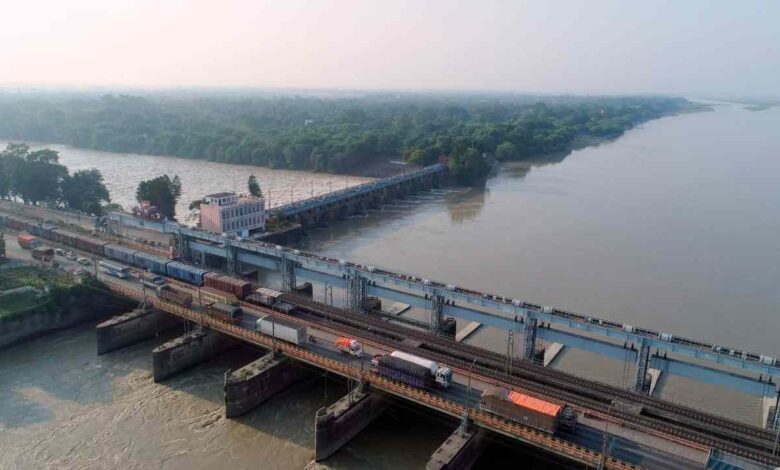Ganges Water Treaty: Why India Wants to Review the 30-Year-Old Treaty

Ganges Water Treaty: The Indian government has decided to review the historic Ganges Water Sharing Treaty with Bangladesh. The 30-year term of this treaty, signed in 1996, is set to expire in 2026. This decision could lead to renewed negotiations on water sharing between the two countries, which is extremely important in the geopolitical context of the region.
Background and Importance of the Treaty
This historic treaty was signed on December 12, 1996, between the then Prime Minister of India, H.D. Deve Gowda, and the Prime Minister of Bangladesh, Sheikh Hasina. The main objective of the treaty was to ensure an adequate flow of water from the Farakka Barrage for Bangladesh during the dry season (January 1 to May 31). According to a crucial clause of the treaty, India is obliged to provide a minimum of 35,000 cusecs of water to Bangladesh for a specific ten-day period during the dry season, regardless of its own needs. This water is vital for agriculture, drinking water, and salinity control in the southwestern region of Bangladesh, especially the Khulna division.
Why Does India Want to Review the Treaty?
- Shift in Diplomacy: India is now moving away from “soft diplomacy” and emphasizing a “national interest-first” policy.
- Climate Change and Current Realities: Over the past 30 years, there have been many changes in water demand and availability in the Ganges basin due to population growth, urbanization, and climate change, which are not reflected in the old treaty.
- Flexible Water Allocation: India wants to introduce a real-time or realistic water allocation system instead of supplying a fixed amount of water, which will change according to the current situation.
- Leverage in Teesta Deal: Through negotiations on the Ganges Treaty, India may gain some advantage on unresolved issues like the Teesta water-sharing agreement.
Bangladesh’s Concerns
Bangladesh is naturally concerned by this move from India. The main reasons for their concern are:
- The fear of reduced water flow during the dry season, which would have a severe impact on the country’s agriculture, navigation, and environment.
- This step by India could weaken the mutual trust and cooperation between the two countries.
- There is a possibility of China’s influence increasing in this situation, especially after China’s investment proposal for the Teesta river project.
Future Prospects
In the coming days, India may put forward some new proposals in the treaty review, such as:
- Removing the minimum water supply guarantee.
- Implementing a real-time monitoring system.
- Creating a new water-sharing model adapted to climate change.
On the other hand, Bangladesh will want to maintain the minimum water flow, ensure transparency in data sharing, and oppose unilateral dam construction by India.
This treaty review is a major test for both countries. The future of India-Bangladesh relations and the overall stability of the region depend on its outcome.

